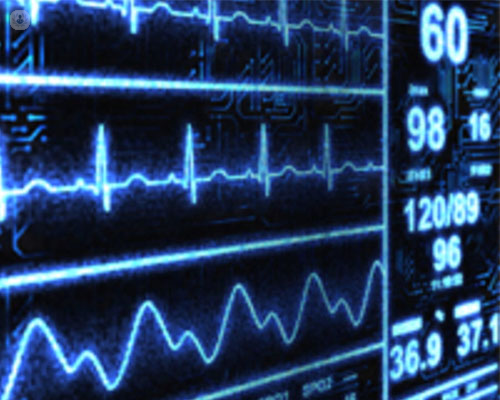Who can suffer an arrhythmia? Causes and risk of atrial fibrillation
Written by:
What is atrial fibrillation?
Atrial fibrillation consists of an alteration of the electrical system of the heart that causes it to beat irregularly instead of beating regularly and also to higher pulsations than usual, hence the symptoms that can occur such as palpitations. , difficulty breathing and chest pain. It must be said that it is the most frequent arrhythmia that there is and that it involves a series of important health problems, in fact it can occur both in young people and in elderly people and in these it is much more frequent, occurring in more than 20% of elderly people 80 years old
What are the causes of the arrhythmia?
The most frequent cause of atrial fibrillation is hypertension itself, the changes produced by long-term hypertension in the structure of the heart and in the electrical system of the heart. In addition there are other diseases of the heart that can produce atrial fibrillation in a more or less frequent way. Also other conditions that have nothing to do with the heart such as thyroid, excessive alcohol intake, lung diseases or abuse of stimulants can also produce atrial fibrillation and should be known. It is also not uncommon to see it in young people in whom apparently the heart is normal, we do not detect anomalies and it is something that we are seeing lately more in competition athletes because of the effect of a very aggressive training on the own heart that produces changes in the left atrium and can lead to atrial fibrillation that should also be treated as when associated with other heart diseases.

What risk is there? Which patients should follow up?
The main risks of atrial fibrillation are of 2 types, one due to the fact that when the arrhythmia occurs the heart beats more quickly, this can trigger especially in patients who already have a basic heart disease, a heart failure that it manifests as a difficulty in breathing and requires timely treatment, not only for atrial fibrillation but also for heart failure. On the other hand the most probably fearsome problem is that of strokes, mainly cerebral strokes, also called strokes, which are due to atrial fibrillation can produce clots inside the heart, which we call thrombi, these clots can be released from the heart and cover an artery in the brain. At that time a cerebral embolism can occur and is probably the most fearsome consequence and that we should always treat in these patients.
How is atrial fibrillation treated?
Atrial fibrillation has 2 fundamental parts in its treatment, one is to give anticoagulant treatment to prevent cerebral embolisms, Sintron is usually used, and secondly, the treatment itself of the arrhythmia, in some cases we will consider removing the arrhythmia to restore the normal rhythm of the heart and this is usually done by an electrical cardioversion consisting of the application, by means of a paddle, of electrical energy over the heart in such a way that in an important part of the cases we get back the normal rhythm to the heart. In the event that it is ineffective we can also consider a slightly more aggressive technique that is radiofrequency ablation, which consists of putting some catheters inside the heart and burning the area where the arrhythmia occurs in such a way that if it is effective, in many cases we can cure the patient. In cases where all of this has been ineffective, we must comply with controlling the patient's pulsations, although the patient has a chronic arrhythmia, we will control these pulsations well and there should be no long-term problems.


